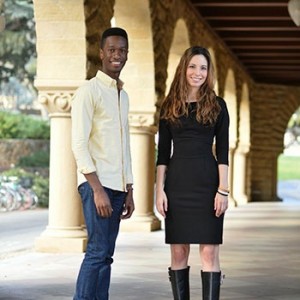
An unprecedented alliance formed among four leading West Coast universities aims to remedy a seemingly intractable nationwide problem: Too few underrepresented minority Ph.D. students in the mathematical, physical and computer sciences and in engineering are advancing to postdoctoral and faculty ranks at top-tier research universities.
The new consortium – the California Alliance for Graduate Education and the Professoriate – is being led by the University of California, Berkeley, and includes Stanford, UCLA and the California Institute of Technology. The group launched a new project with a $2.2 million grant, which the National Science Foundation (NSF) provided to increase diversity in these targeted STEM fields a universities and national labs. Participants at Stanford include the schools of Earth Sciences, Engineering and Humanities & Sciences.
Together, the four schools are creating a new, cross-institutional community of underrepresented minority Ph.D. students, postdoctoral scholars and faculty members in the targeted fields; faculty training to better recognize and help these students thrive and advance; and research that includes annual surveys of Ph.D. students about what factors impact their attitudes, experiences and preparation for the future.
Read Gretchen Kell’s full article here.




